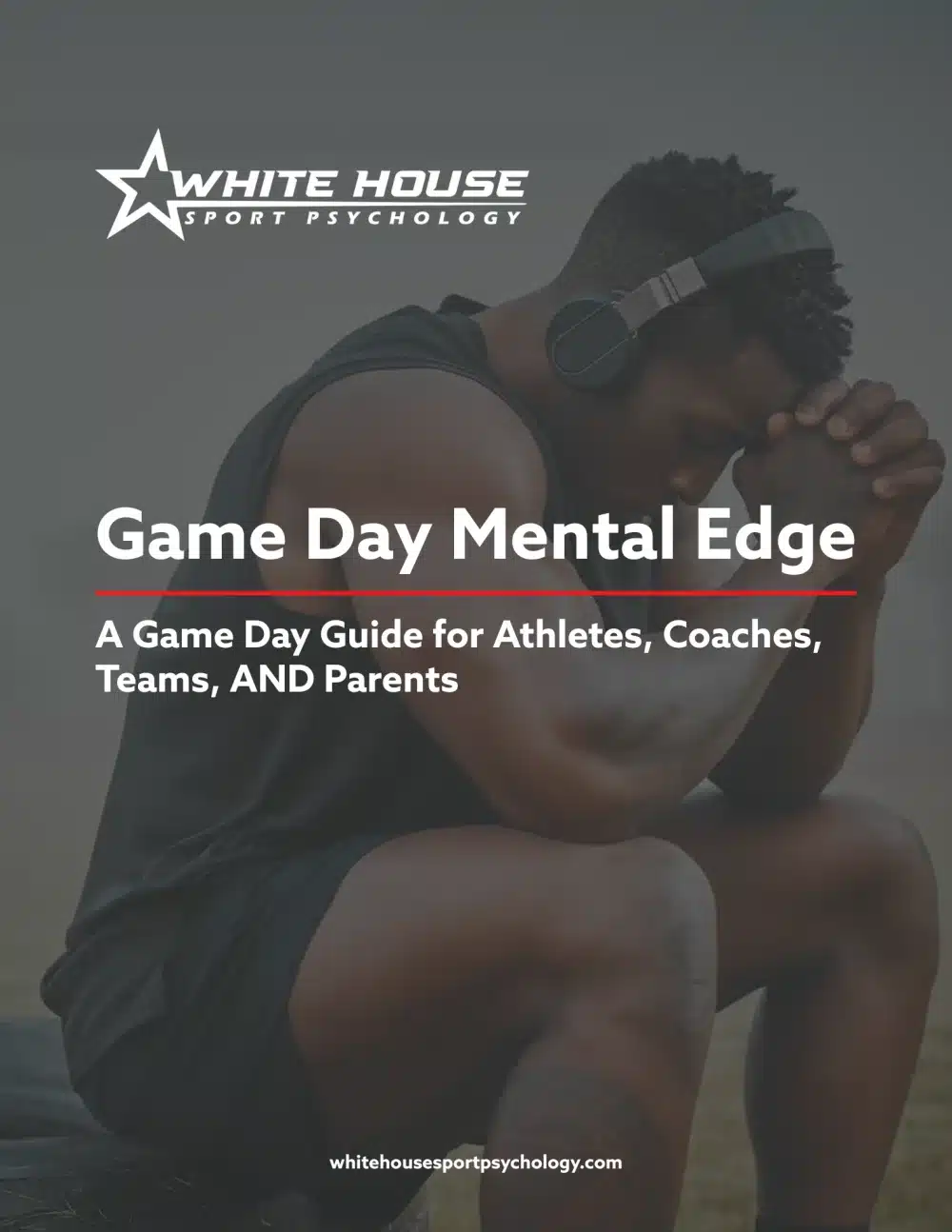In today’s digital world, social media and technology play a massive role in an athlete’s life—both in and out of sport. While these tools can provide incredible opportunities for connection, branding (NIL), and education, they can also become distractions, sources of stress, and even performance inhibitors if not managed well.
At White House Sport Psychology, we encourage athletes and their families to develop healthy boundaries around social media and technology use. Here are three essential tips to help athletes and their parents strike the right balance:
1. Establish Tech-Free Zones and Times
The constant presence of screens can interfere with mental recovery, focus, and overall well-being. To foster a healthy relationship with technology:
- Designate specific tech-free times, such as during meals, an hour before bedtime, and pre-competition routines, to help athletes stay present and reduce digital overload.
- Create physical spaces where phones and tablets are off-limits, such as bedrooms or training facilities, to reinforce a healthy separation between online and offline life.
- If you are a parent, model these boundaries and make it a family-wide effort that supports the athlete’s well-being.
2. Use Social Media with Intention
Instead of letting social media become a mindless habit or a source of comparison and stress, athletes should take control of their digital experience:
- Follow accounts that inspire and educate rather than those that fuel negativity or unrealistic expectations.
- Set time limits on social media use to prevent excessive scrolling that can lead to mental exhaustion and self-doubt.
- Encourage athletes to think before they post—asking themselves if what they are posting aligns with their values, goals, and the image they want to project.
A powerful example of the impact of social media pressure is Hailey Van Lith, a standout college basketball player at TCU. In a recent article, she opened up about the toll social media scrutiny took on her mental health, emphasizing the need for athletes to create boundaries and seek support when online interactions become overwhelming.
Her story highlights the importance of intentional social media use and reinforces the need for athletes to prioritize their mental well-being over online validation.
3. Develop a Healthy Response to Online Pressure
Athletes today face unprecedented levels of online scrutiny and pressure. Whether it’s the temptation to chase validation through likes or the impact of negative comments, it’s crucial to build mental resilience:
- Help your athlete learn how to separate their self-worth from social media engagement metrics (eg. work with a sport psychologist, spiritual practices, journaling, etc.). Remind them that likes and followers do not define their abilities or identity.
- Discuss strategies to handle criticism, including blocking trolls, limiting exposure to negative comments, and focusing on feedback from trusted coaches and mentors instead of anonymous online opinions.
White House Sport Psychology can help parents and athletes establish an open dialogue about online interactions, so everyone feels supported and empowered rather than overwhelmed.
Final Thoughts
Technology and social media aren’t going anywhere, and when used mindfully, they can be powerful tools for athletes. By setting clear boundaries, using social media intentionally, and developing resilience to online pressure, athletes and their parents can create a digital environment that enhances performance and well-being instead of hindering it.
At White House Sport Psychology, we encourage families to approach social media and technology with awareness and purpose. When balanced effectively, these tools can support an athlete’s mental game rather than work against it.
Here are some positive social media personalities that athletes and parents can follow for inspiration, education, and motivation:
One way to make social media a positive space is by following accounts that uplift and educate. Some great options include:
Sports Psychology & Mental Performance
- White House Sport Psychology (@WhiteHouseSportPsychology) – Helping athletes build mental resilience and perform at their best.
- Jon Gordon (@JonGordon11) – Best-selling author on leadership, mindset, and positive habits.
- Jay Glazer (@JayGlazer) – NFL insider who speaks openly about mental health and resilience.
- Trevor Moawad (@TrevorMoawad, legacy account) – Late mental conditioning expert known for “neutral thinking.”
Elite Athletes with a Positive Presence
- Tim Tebow (@TimTebow) – Former NFL player and motivational speaker, sharing faith and resilience messages.
- Simone Biles (@SimoneBiles) – Olympic gymnast advocating for mental health and perseverance.
- Giannis Antetokounmpo (@Giannis_An34) – NBA star emphasizing hard work, humility, and family values.
- Megan Rapinoe (@mrapinoe) – Soccer champion speaking on leadership and athlete advocacy.
Parenting & Youth Sports
- John O’Sullivan (@ChangingTheGameProject) – Founder of Changing the Game Project, promoting positive youth sports culture.
- Positive Coaching Alliance (@PositiveCoachUS) – Shares resources for parents, coaches, and athletes on character-building in sports.
- Travis Daugherty (@TravisDaugherty) – Author focusing on raising strong and resilient young athletes.

